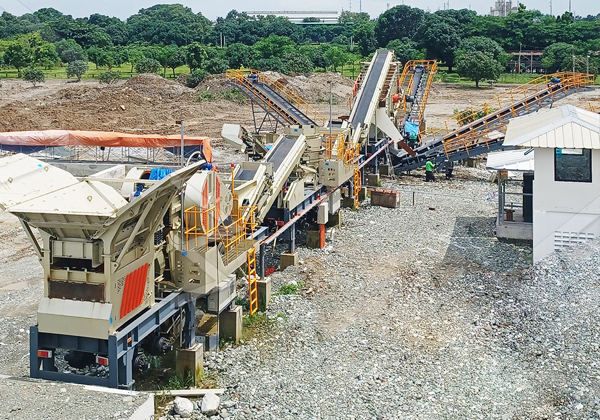A metal ore mobile crushing production line is an essential component in the mining industry, providing a versatile and efficient means of processing various types of metal ores. This production line is designed to be highly mobile, allowing it to be easily transported to different mining sites and adapted to varying production needs.

Key Components of a Mobile Crushing Production Line
- Feeding System: The feeding system typically consists of a hopper and a vibrating feeder. The hopper stores raw metal ore, while the vibrating feeder evenly distributes the ore to the crusher. This ensures a steady flow of material, preventing blockages and optimizing crusher efficiency.
- Primary Crusher: The primary crusher is usually a jaw crusher or gyratory crusher, which reduces large chunks of ore to a manageable size. Jaw crushers are known for their high capacity and ability to handle large feed sizes, making them ideal for the initial stage of the crushing process.
- Secondary Crusher: Depending on the type of ore and the desired final product, a secondary crusher is often used. Cone crushers and impact crushers are common choices for secondary crushing. Cone crushers are effective for breaking down harder ores, while impact crushers are suitable for softer materials and producing finer particles.
- Screening System: After the primary and secondary crushing stages, the material is passed through a screening system. This system typically includes vibrating screens that separate the crushed ore into different size fractions. This step is crucial for ensuring that the final product meets the required specifications.
- Conveying System: Conveyors are used to transport material between the different stages of the crushing process. They play a vital role in maintaining a continuous and efficient flow of material. Mobile conveyors can be adjusted in length and angle to accommodate varying site layouts.
- Control System: Advanced control systems are used to monitor and regulate the crushing process. These systems can include automated features that adjust crusher settings based on real-time feedback, optimizing performance and reducing downtime.
Advantages of Mobile Crushing Production Lines
- Flexibility and Mobility: One of the primary advantages of mobile crushing production lines is their mobility. They can be quickly relocated to different mining sites, reducing the need for extensive infrastructure and minimizing transportation costs for raw materials.
- Cost-Effective: By bringing the crushing equipment to the mining site, mobile production lines eliminate the need for transporting raw ore to a fixed processing plant. This can result in significant cost savings in terms of transportation and logistics.
- Reduced Environmental Impact: Mobile crushing plants can help reduce the environmental impact of mining operations. By minimizing the need for hauling raw materials over long distances, they reduce fuel consumption and emissions associated with transportation.
- Efficient Resource Utilization: These production lines are designed to maximize the efficiency of the crushing process. Advanced technology and automation ensure that the equipment operates at peak performance, optimizing resource utilization and reducing waste.
Applications of Mobile Crushing Production Lines
Mobile crushing production lines are used in a variety of applications, including:
- Metal Mining: For extracting and processing metals such as iron, copper, gold, and silver. These lines can handle a wide range of ore types and deliver consistent, high-quality output.
- Construction and Demolition: They are also used in recycling construction and demolition waste, turning rubble into usable aggregates for building and road construction.
- Quarrying: In quarrying operations, mobile crushers are used to produce various grades of aggregate, which can be used in concrete production, road base, and other construction projects.
In conclusion, a metal ore mobile crushing production line offers a highly efficient, flexible, and cost-effective solution for processing metal ores. Its advanced technology and adaptability make it an invaluable asset in the mining and construction industries, ensuring optimal productivity and sustainability.
